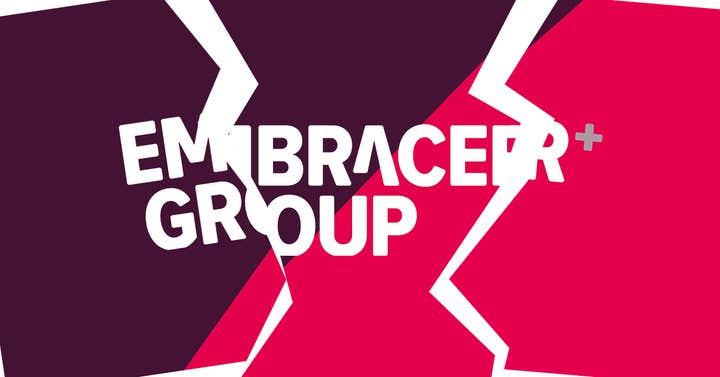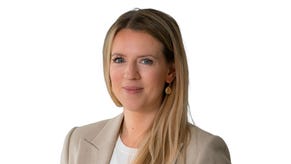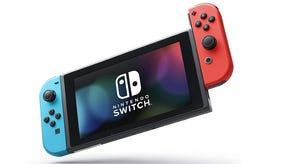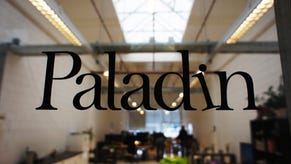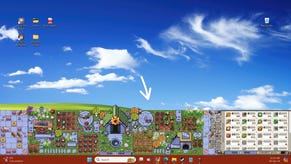Embracer Group splits into three: Everything you need to know
Asmodee and Coffee Stain to be spun out as separate publicly-listed entities, Middle-Earth Enterprises to front remaining group
Sign up for the GI Daily here to get the biggest news straight to your inbox
Embracer Group has announced its split into three separate companies.
The three entities created will independently publicly listed on Nasdaq Stockholm. These companies are currently being referred to as Asmodee Group, Coffee Stain & Friends, and Middle-Earth Enterprises & Friends – although the latter two will be given a new name at a later date.
While Asmodee and Coffee Stain will become new listings on Nasdaq Stockholm, Middle-Earth will remain within the Embracer Group as it is currently listed. This listing may also be renamed.
Asmodee will split off within the next 12 months, while Coffee Stain will separate during calendar year 2025. Shares in these two will be distributed to the shareholders of Embracer Group.
The company claimed that separating into three entities will enable each to focus on its "core strategies" and grow in their own ways. The 900 fully owned or controlled IP across Embracer will be moved into the relevant new entity.
Asmodee Group will focus on tabletop games, while Coffee Stain's titles will range from indie to AA games for PC, console and mobile.
Middle-Earth Enterprises & Friends, meanwhile, will concentrate on AAA gaming for PC and console, handling Embracer's biggest franchises such as The Lord of the Rings and Tomb Raider.
Embracer has said there will still be collaborations around companies and IP across the three businesses, but this will be handled "on market terms."
Embracer CEO Lars Wingefors will remain the owner of all three companies, and has said he "intends to form a new long-term ownership structure."
"I have always viewed my role as a group CEO and main owner to be a promoter for successful entrepreneurs, game makers and business leaders in achieving more success," he wrote in an open letter about the company's transformation. "This will not change."
The split follows the end of a nine-month restructuring program, which saw Embracer close three studios (Volition Games, Free Radical Design and Campfire Cabal), sell off Saber Interactive and Gearbox, and lay off more than 1,400 members of staff.
Here's a more detailed breakdown on each of the three entities:
Asmodee Group
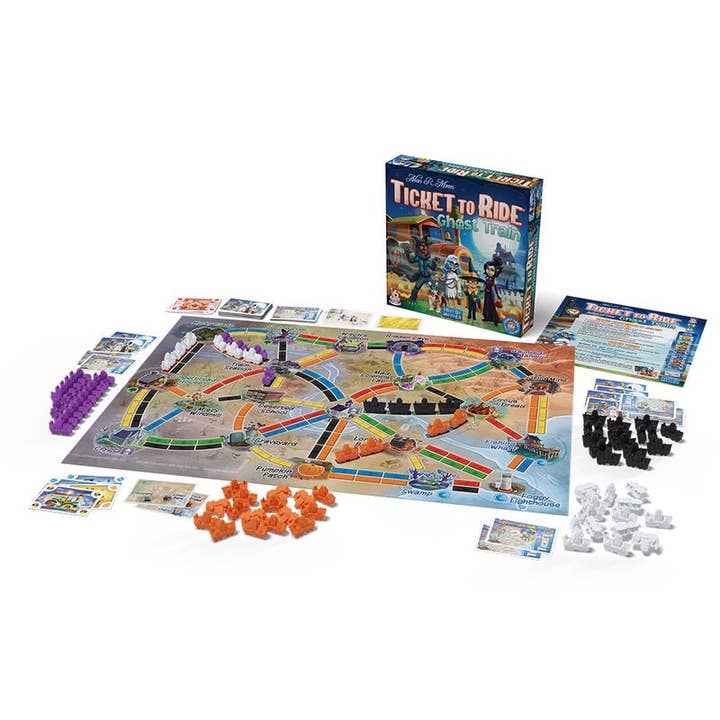
The Asmodee Group will largely remain similar in its organisation, including the 23 in-house tabletop games development studios.
Thomas Koegler, current deputy COO, will become CEO of the Asmodee Group in the coming months. Current CEO Stéphane Carville will join the board of directors, as will founder and current COO Marc Nunes.
Asmodee Group will maintain the tabletop publisher's portfolio of more than 300 owned IPs, including Ticket to Ride, 7 Wonders, Azul, Catan, Dobble, and Exploding Kittens, as well as various distributed games and IPs.
Alongside the announcement of Embracer's transformation, the group announced it is entering a financing agreement through Asmodee to the tune of €900 million (approximately SEK 10.5 billion).
This loan from JP Morgan, BNP Paribas, SEB, Societe Generale and Swedbank, has a maturity of up to 18 months and is on similar terms as Embracer's existing loan of SEK 8 billion (almost €690 million).
Embracer has said this deal is an "important part of the debt refinancing" for the group following its restructuring program.
_ntW4Tke.jpg?width=720&quality=70&format=jpg&auto=webp)
Coffee Stain & Friends
The Coffee Stain company will operate under two segments: premium and free-to-play.
The premium division will encompass Coffee Stain, THQ Nordic, Amplifier Game Invest, Ghost Ship, Tarsier, Tuxedo Labs, and more. It will control more than 200 IPs, including Deep Rock Galactic, Goat Simulator, Satisfactory, Wreckfest, Teardown, Valheim.
Meanwhile, the free-to-play segment will include Easybrain, Deca, CrazyLabs and Cryptic, handing games such as Sudoku.com, Blockudoku, Jigsaw Puzzle, and more. This will also handle current licensed free-to-play games such as Star Trek Online and D&D Neverwinter Online.
Coffee Stain CEO Anton Westbergh will retain his leading role. The CEOs for THQ Nordic, Amplifier Game Invest, Deca Games, and Easybrain will report to him as of today.
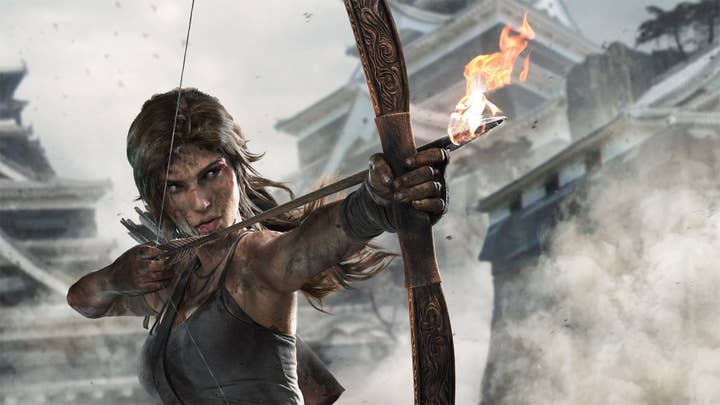
Middle-earth Enterprises & Friends
The Middle-Earth group will include Crystal Dynamics, Dambuster Studios, Eidos-Montréal, Flying Wild Hog Studios, Tripwire, Vertigo Games, Warhorse Studios, and 4A Games among many others.
Embracer-owned businesses such as Metro publisher Plaion, Dark Horse Comics, Freemode will also be part of this entity.
In addition to The Lord of the Rings and Tomb Raider, Middle-Earth Enterprises & Friends will be responsible for Dead Island, Killing Floor, Kingdom Come Deliverance, and Metro, among others.
Group chief strategy officer Phil Rogers will lead the process around this separation, with the CEOs of Plaion, Dark Horse, and Freemode reporting into him as of today.
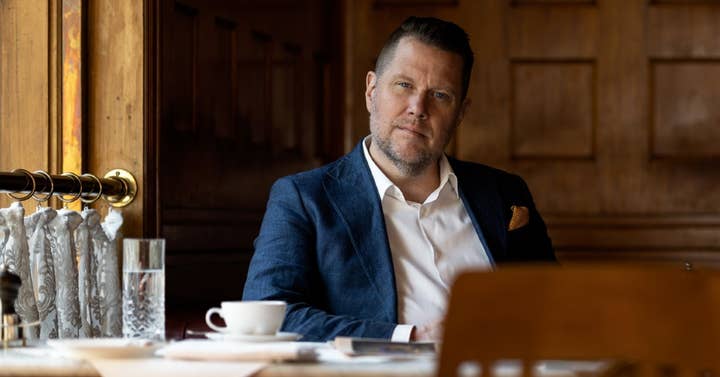
The executive management team
Phil Rogers and Anton Westbergh have also been appointed to the executive management of the Embracer Group as of today. Asmodee's current CEO Stéphane Carville has also joined this team, until he is replaced by Thomas Koegler.
The executive management of Embracer Group now includes:
- Lars Wingefors, Group CEO
- Johan Ekström, Group CFO and deputy CEO
- Careen Yapp, chief strategic partnership officer
- Ian Gulam, chief of staff, legal and governance
- Anton Westbergh, Coffee Stain CEO
- Phil Rogers, Group chief strategy officer
- Stéphane Carville, Asmodee CEO
In his open letter, Wingefors reflected on Embracer's journey so far, noting that: "It has not always been a straight road, but I am very proud of the achievements made possible by thousands of talented individuals who create exceptional content entertaining millions of people worldwide."
He continued: "We have some of the most extraordinary companies and IPs in the games and entertainment industry within Embracer today, and it is my duty to ensure the best possible conditions for continued success. I am convinced that the best is still ahead of us."
Wingefors said the decision to split the group into three was partly inspired by other larger, diversified groups that have moved to a more agile structure, including other companies from Embracer's home market of Sweden.
"The time is right for Embracer to become three public companies, each boasting sufficient scale, coherent strategies, specialised business models and empowered by visionary leadership teams," he wrote.
"Rather than imposing conformity on thriving businesses, we should foster an environment that amplifies existing success. I am confident that this will be easier with three distinct winning formulas in specific market segments."
Sign up for the GI Daily here to get the biggest news straight to your inbox
Correction: The number of IP owned by Embracer was previously listed as 9,003. Embracer has since corrected this to '900'.
